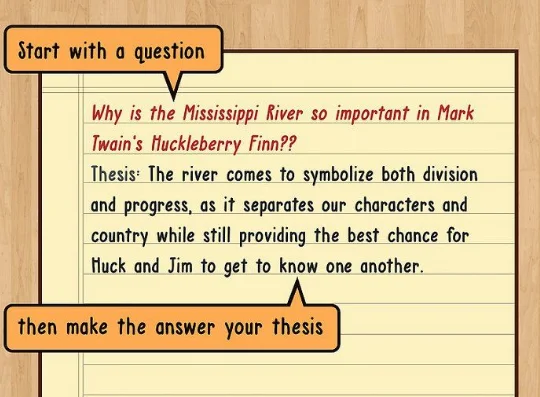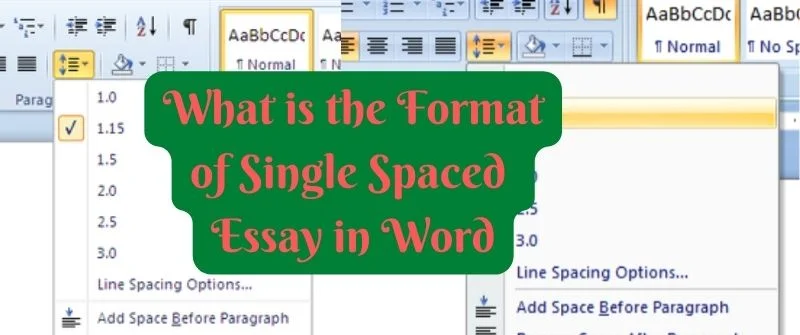Can an Essay be One Paragraph? Writing short body Paragraph

When it comes to essay writing services, the question “Can an essay be one paragraph?” arises in many students’ minds. It is a pitfall for most students. The process of writing is never easy. It takes time and effort.
Do not fret anymore if you lack an idea of where to begin. We will take a look and answer some common questions that might help ease your troubles.
An essay can be one paragraph if that is the instruction given by your faculty or the content requires presenting just one idea. While this is a short essay, an essay can sustain an argument through one long paragraph if well written. The essential point is that it should be long enough to give your reader a good idea of what you are saying.
Your main purpose in writing an essay is not to get readers to think about or agree with your ideas.
It is to help them understand and analyze what you’ve said and why you are saying it.
This will assist them to draw their conclusions.
How to Write a One-Paragraph Essay
A one-paragraph essay is not a sentence long. It consists of one topic sentence and two sentences supporting it. It is meant to be shorter than a traditional essay but longer than a short essay. It’s different from writing a 3-page essay.

The steps to writing a successful one-paragraph essay are as follows:
Step #1 Come up with an angle
Your thesis statement will be the angle you choose to take on your subject.
You might choose to write about something that is happening in the news (a current event) or pull apart a specific example of how people are doing things wrong (a current controversy).
Step #2 Determine the Audience
You may need to ask yourself who is going to judge this essay — your professor, your teacher, your classmates, or the editor of your college newspaper. The fewer people involved in judging it, the better chance you have of getting an “A” for it.
Step #3 Developing your Thesis Statement

This should be the main focus of your essay’s first paragraph.
Your thesis should be clear, concise, and well-supported by examples and evidence throughout the body paragraph.
You will need to clearly state what you are arguing and demonstrate how it supports your claim.
Get a strong thesis statement that clearly states what you are going to talk about in this essay.
This will help organize your thoughts and will help you decide which facts to include and which points are worth making.
Step #4 Write a list of Facts that Support your Thesis Statement
You cannot include everything that supports your thesis, but you might want to make a list of five key points that support your argument and include those in your introduction paragraphs later on in the essay.
Step #5 Keep it Short
This may seem obvious, but as many students know, there is more to writing an effective one-paragraph essay than simply writing about the right thing in the right amount of space. Those who can do this can do so because they have mastered the art of brevity, which should be your first goal when you sit down to write your one-paragraph essay.
Begin with an introductory paragraph where you state what you are going to discuss, and start with the first fact on your list. A good way to start is by finding a topic that will get your readers interested in what you’re going through and move them along toward your thesis statement.
Step #6 Get Specific with Details and Examples
Be sure to include at least two supporting points and two examples that illustrate what you are talking about. These two examples relate to the main point of your essay; they don’t necessarily have to be the same example or even both examples of the same type of thing. They just need to show how your main point relates to the topic.
Finally, conclude your topic by stating your stand.
One Paragraph Essay Structure
1. The Introduction/Outline

An introduction sets up your point. You can use this paragraph to introduce your subject, explain why you’re writing about it, or provide background information on a particular issue.
If you’re looking for inspiration, consider the works of authors who write concisely and clearly.
2. Supporting Details
Details are the meat of an essay. They establish credibility and add texture to your argument. You can support your thesis by explaining why you believe what you do or why someone should or shouldn’t do something.
3. Conclusion
The conclusion wraps up everything you have said in the introduction and supports your argument with details that seal the deal.
In writing a one-paragraph essay, you will want to follow certain organizational principles to make sure that your topic is covered effectively.
- Structure: The structure of an essay can vary from paper to paper, but some general guidelines are important in any type of academic essay:
- Organization: This might seem obvious, but your introduction should set the tone for the rest of the piece. It should introduce your topic, explain what you’ll be discussing, and give a brief overview of the course material that’s covered in this assignment.
- Content: Your body paragraphs should cover your central argument(s) using evidence from the text and relevant examples from the text as support. These paragraphs should have some sort of point they’re trying to make.
- Formatting: You will want to use clear language and proper grammar syntax, as well as proper spelling and punctuation when writing an essay. If you are not using APA formatting for your paper, be sure to double-check it for errors before you submit it.
Advantages of Paragraph Essays
The main advantages of one-paragraph essays include the following:
Informative and Easy to Read
When an essay is too long, it can be difficult to find the main points and the specifics for each point. A one-paragraph essay can briefly address several different aspects and then move on, making it easy for the reader to absorb all of the relevant information in one place.
Simple and Fast

The beauty of one-paragraph essays is that they are entirely self-contained. There is no need to go back and reference anything from previous paragraphs as long as your thesis statement is still correct.
Examples of One-Paragraph Essay Topics
The most common Paragraph Essay Topics are listed below:
1. Personal Statement- This topic can be related to your family background, your family values, and your family traditions, and can also be related to your relationship with your parents and other family members.
2. Educational History- In this topic, you have to show how good and intelligent you are from when you were a child till now. You should talk about the schools where you studied, the subjects that you studied and how good these subjects were.
3. Interpersonal Relationship- This topic has to be related to your social life and also to the people that you know, either in school or in your personal life.
4. Career Prospects- This topic has to be related to your career aspirations and goals of life after education, like a job that you want to get or any other ways which can help you earn money easily so that you can buy all the things that will make your life happy later on in future.
5. Argument: You want to make your essay stand out from the pack. You might pick an argument that’s been controversial in the past or focus on something related to current events or pop culture.
6. Personal experience: Writing about something you have experienced yourself can be powerful if it’s done well. If you pick something personal like a family member’s medical problems, make sure that you give enough background information so that it makes sense to anyone who hasn’t experienced it themselves.




